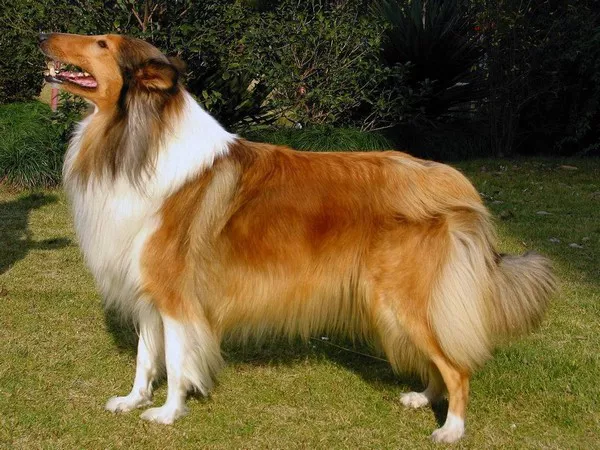Caring for a 6-week-old rabbit requires special attention, especially when it comes to feeding. At this stage, rabbits are transitioning from their mother’s milk to solid food. Providing the right nutrition is essential to ensure proper growth, a healthy digestive system, and overall well-being. In this guide, we will discuss the ideal diet for a 6-week-old rabbit, including safe foods, feeding schedules, and common mistakes to avoid.
Understanding a Rabbit’s Digestive System
Rabbits have a unique digestive system designed to process fibrous plant materials. Their diet must be carefully balanced to prevent digestive issues such as bloating and diarrhea. A young rabbit’s gut is still developing at 6 weeks, so introducing new foods gradually is crucial. Their digestive tract relies on beneficial bacteria to break down food, and sudden dietary changes can disrupt this balance.
Mother’s Milk and the Weaning Process
By 6 weeks old, most rabbits have been weaned from their mother’s milk. However, some breeders or owners might choose to leave them with their mother for an additional week to ensure a smooth transition. If a rabbit is removed from its mother before 6 weeks, it may struggle to digest solid food properly, leading to potential health complications.
During the weaning process, baby rabbits gradually move from milk to solid food. By 6 weeks, they should be accustomed to eating pellets and hay, but their diet still needs to be monitored closely.
The Ideal Diet for a 6-Week-Old Rabbit
A balanced diet for a 6-week-old rabbit should consist of the following:
1. High-Quality Hay (Essential Component)
Type: Timothy hay, orchard grass, or meadow hay.
Why It’s Important: Hay is the most important part of a rabbit’s diet. It provides fiber, which aids digestion and prevents gastrointestinal stasis (a serious condition where the digestive system slows down or stops).
How Much to Feed: Unlimited access—rabbits should always have fresh hay available.
2. Rabbit Pellets (Supplemental Nutrition)
Type: High-fiber, high-quality pellets designed for young rabbits.
Nutritional Requirements: At least 18% fiber, moderate protein (14-16%), and low fat.
How Much to Feed: About 1/4 to 1/2 cup per day per rabbit, depending on size and breed.
Avoid: Pellets with added seeds, nuts, or dried fruits, as these can be too rich and lead to digestive issues.
3. Fresh Water (Vital for Hydration)
Why It’s Important: Rabbits need constant access to clean water to stay hydrated and aid digestion.
How to Provide: Use a water bottle or a heavy ceramic bowl (bowls are often preferred as they allow a more natural drinking posture).
Change Daily: Fresh water should be provided daily to prevent contamination.
4. Limited Fresh Vegetables (Introduce Slowly)
Safe Vegetables for a 6-Week-Old Rabbit:
- Romaine lettuce (not iceberg)
- Cilantro
- Parsley
- Basil
- Dill
How to Introduce: Start with small amounts of one type of vegetable at a time and monitor for any signs of diarrhea or bloating.
How Much to Feed: A small piece once a day at first, increasing gradually over time.
5. Avoid Fruits and Treats at This Stage
Why? A young rabbit’s digestive system is still developing, and fruits contain high sugar levels that can cause digestive upsets.
When to Introduce Fruits: Around 12 weeks of age, and only in small amounts.
Feeding Schedule for a 6-Week-Old Rabbit
Morning: Fresh hay + measured portion of pellets + fresh water
Afternoon: More hay + small amount of a single vegetable (if introducing veggies)
Evening: Hay + another portion of pellets + fresh water
Rabbits graze throughout the day, so hay should always be available. Pellets should be given in controlled portions to prevent overeating.
Common Feeding Mistakes to Avoid
1. Feeding Too Many Pellets
Pellets should only be a supplement to hay, not the primary food source. Overfeeding pellets can lead to obesity and digestive issues.
2. Introducing Vegetables Too Quickly
A rabbit’s digestive system is sensitive. Introduce vegetables slowly to avoid stomach upset.
3. Providing the Wrong Type of Hay
Avoid alfalfa hay for a 6-week-old rabbit unless recommended by a veterinarian. It is too high in calcium and protein, which can lead to kidney and digestive problems.
4. Feeding Processed or Sugary Foods
Never give young rabbits processed foods, cereals, crackers, or sweets. These can cause severe digestive issues.
5. Ignoring Water Needs
Dehydration can lead to serious health issues. Always ensure fresh water is available.
Signs of a Healthy Diet
A well-fed 6-week-old rabbit should:
- Have a soft, smooth coat
- Be active and alert
- Produce small, firm droppings
- Show interest in eating and drinking regularly
If you notice diarrhea, lethargy, or refusal to eat, consult a veterinarian immediately.
Conclusion
Feeding a 6-week-old rabbit requires careful consideration and balance. Providing unlimited high-quality hay, measured amounts of pellets, fresh water, and slowly introducing vegetables ensures a healthy digestive system and proper growth. By avoiding common feeding mistakes and monitoring their diet, you can set the foundation for a long and happy life for your rabbit. Always consult a veterinarian if you have concerns about your rabbit’s diet or health.
Related Topics:






















